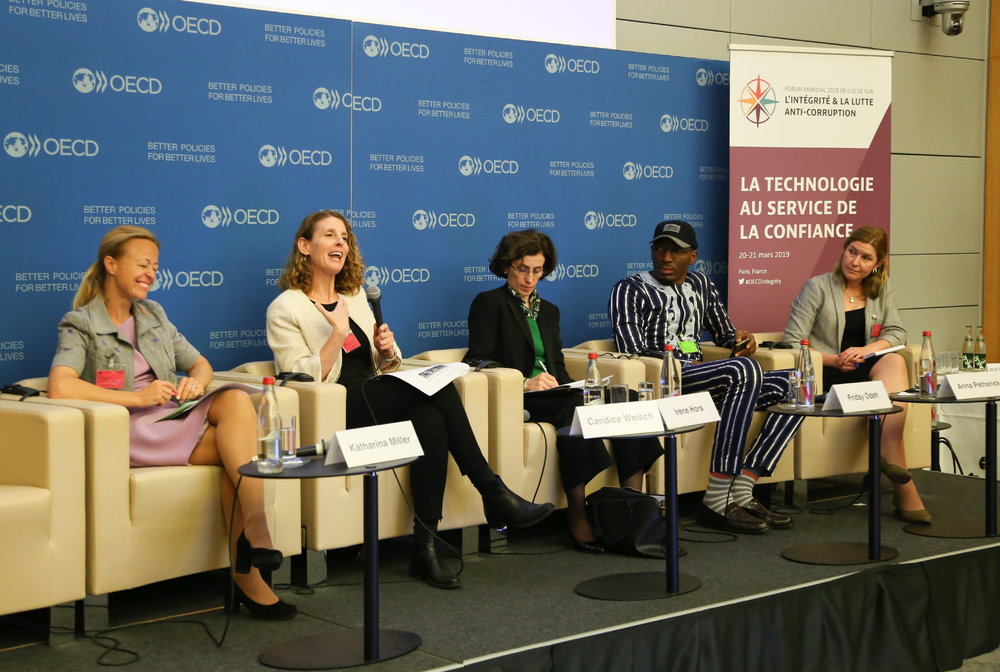responsible conduct of research, reliable research results, teaching and learning
Gender equality is a key topic within Path2Integrity
Path2Integrity’s Gender Expert Katharina Miller attended the Global Anticorruption & Integrity Forum 2019 of the Organisation for Economic Co-operation and Development (OECD) on 21 March 2019. Katharina was a panelist on the topic of Unequal Footing & Integrity, focusing on how governments, companies and NGOs can integrate the gender and integrity agendas for better policy outcomes with the overarching goal to improve gender equality across societies.

The topic of gender equality is of high importance also to Path2Integrity as part of the project’s mission to enhance the research integrity culture. Therefore, project partners will implement tasks to deepen the understanding of men’s and women’s behaviours in learning research integrity. The gender analysis will be highlighted in three different parts of the project and will be taken into account in the whole process of the coordination and support action. These are:
- Eye-level conversations for young women and men
Storytelling and role-play are often mixed-gender interactions in classrooms, incorporating gender specific behavioral patterns. According to statistics, women have lower speech percentage and experience higher speech interruption rate in mixed-gender discussions. For that reason, the consortium applies a gender-specific approach. Path2Integrity will introduce a separate training unit for young women and men to exercise eye-level interactions and to minimise the above-mentioned gender-specific patterns. The training aims to broaden women’s and men’s habitual language use and to unfold their different points of view based on their experiences. Young women and men are encouraged to concentrate on how to speak in a mixed-gender group and how to successfully outline their own position and let others outline theirs. Trainings are conducted by the project partner 3C Compliance.
- Gender-specific data on formal and informal learning
In the STEM subjects, different trainings have gender specific outcomes. On that account, the consortium hypothesises that learning research integrity also contains gender-specific effects. Project partners will therefore extend the assessment and observe gender-specific data. This task opens an important perspective for gender specific systematisations in training research integrity. Eventually, Path2Integrity will give gender-specific recommendations on how to teach research integrity.
- Gender-balanced education and further development within the project
Excellence at all levels can only be achieved if workforce diversity is increased and inclusion of talent and perspective is guaranteed. The Path2Integrity consortium aims to systematically balance women and men in participating and leading this project activity. Equal Employment Opportunity (EEO) and non-discrimination have been, and will continue to be, fundamental principles within the project. The Path2Integrity management strategy will be to encourage career progression of all staff, while promoting gender equality, in order to ensure that women and men are given equivalent opportunities to develop their careers and achieve excellence within the project, as well as to allow women to progress to senior positions.